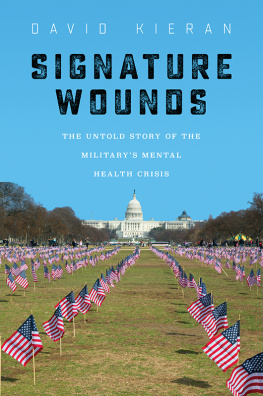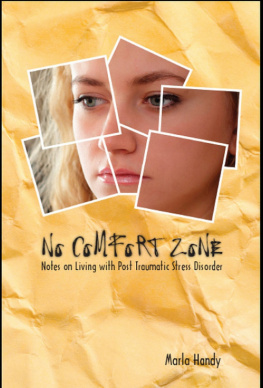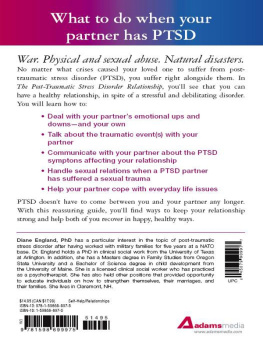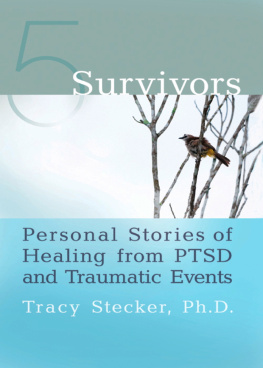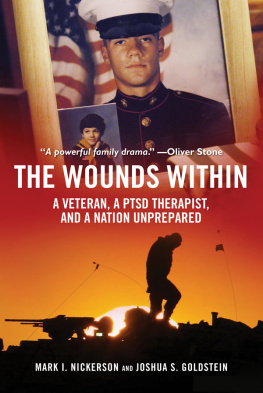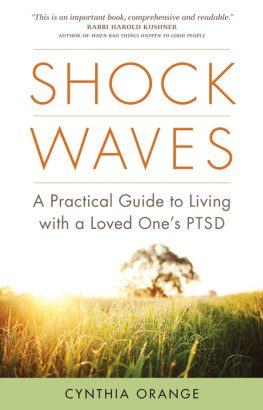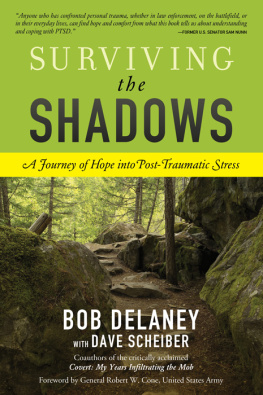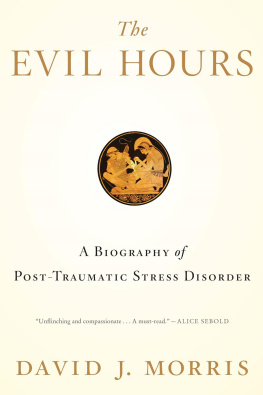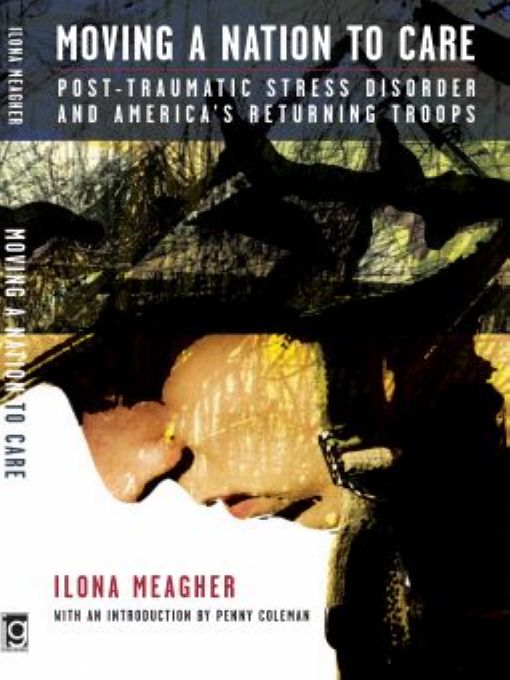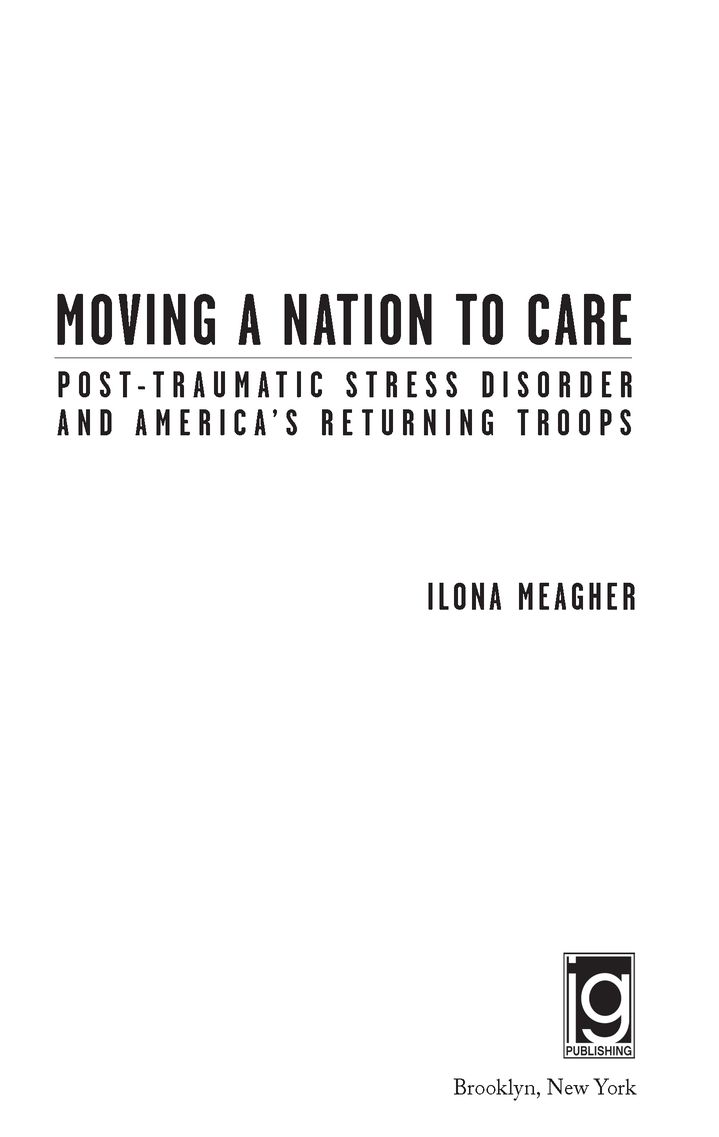Table of Contents
PRAISE FORMOVING A NATION TO CARE
This book is an insiders look at the issues. It begs the question, Are we honoring the sacrifices of the men and women who have served? Are we doing all that we can do to provide them with the tools to return to society. If this book creates debate in Congress or causes a parent to fight for the healthcare of their loved one, then it has accomplished its mission.
Steve Robinson, Director of Veterans Affairs, Veterans For America
Ilona Meagher has done an impressive and important job in researching, assembling and chronicling the psychological suffering and neglect visited upon our new generation of veterans, their families and our nation. Moving a Nation to Care sounds a citizens alarm to action on behalf of our veterans. We all must answer its call.
Edward Tick, Ph.D., Director of Soldiers Heart: A Veterans Safe Return Initiative, and author of War and the Soul, TheGolden Tortoise and The Practice of Dream Healing
Going beyond mere yellow ribbons into the real support that returning troops need, this book is as easy to read as a newspaper and yet well-documented enough to keep on the shelf as a reference. We need to understand what we face, and this book does an excellent job of explaining that, along with what we can do to reduce the damage.
Rachel M. MacNair, author of Perpetration-Induced Traumatic Stress: The Psychological Consequences of Killing
Ilona Meagher has been at the forefront of bringing the plight of veterans suffering from post-traumatic stress disorder to national attention. Moving a Nation to Care is a must read for anyone who understands that the worth of a nation is best measured by how it treats its wounded heroes.
Commander Jeff Huber, U.S. Navy (Retired)
As the stories in Moving A Nation To Care illustrate, much work still remains if America is to fully heal the psychological wounds of war. Ilona Meaghers thorough and well documented research is a valuable resource for all those who truly want to support the troops.
Mark Fleming, Editor, Unsolicited Opinion
PTSD is not a new phenomenon. But this painstakingly and footnoted researched guide reveals the little-recognized cost of the embedded pain and suffering wrought on returning U.S. troops by a high-tech, f ront-less, victory-less, faith-based, quagmire occupation of Iraq.
Bill Densmore,Director,The Media Giraffe Project at the University of MassachusettsAmherst
For Zsuzsanna and our military families
FOREWORD
Our sons and daughters join the military to defend and protect us. Ask any military family what their loved ones mean to them and you will feel the human bonds that unite us in compassion for others. They are our husbands, wives, sons and daughters who form the very fabric of our society.
Wounds from the horror of war can produce a condition called post-traumatic stress disorder. When the hidden wounds of battle flare up from PTSD, it affects us all. We can try to look the other way and pretend there is no problem, but we cannot ignore the human suffering that arises from the personal tragedies of domestic violence, homicide and suicide that emerge as our returning soldiers attempt to re-integrate back into society.
We must do all we can to provide real support and help to those who gave so much. We need to raise our voices for a noble cause. We the people must make our wishes known to those who represent us in Congress. We must fight for those we believe in. In so doing we strengthen our children, our hopes, and ourselves and dreams.
Ilona Meagher has created a battle plan to help our active military, veterans and their families to truly come home. Her extensive research, personal interviews and networking with others dedicated to fighting for veterans has produced this powerful book.
Let us rally behind the troops with actions and deeds geared towards healing and hope. It is the American way.
Robert Roerich, M.D.
American Founder, Roadmind University Online
Vice President, National Gulf War Resource Center
Moderator, VeteranLove.com
INTRODUCTION
Trouble is in the land. Confusion all around... But I know, somehow, that only when it is dark enough, can you see the stars.
Martin Luther King, Jr.
For members of the military and their families, America is a very troubled place right now. On top of enduring the anxiety of one or more combat deployments, upon their return home, these brave men and women are met not with compassion and support, but by a military culture that, in the face of all evidence, insists that their psychological injuries are a sign of weakness. Because of this, returning combat soldiers are discouraged from asking for help, and are forced to do battle with an under-funded bureaucracy in thrall to a partisan political agenda, and, perhaps most isolating of all, kept ignorant of an historical context that would help them understand that they are not alone in their struggles. For these soldiers and their families, as well as for the rest of us, Moving a Nation to Care is a point of light in an otherwise dark expanse.
When Jim Lehrer asked George Bush in January of this year why, if the outcome of the war in Iraq was of such transcendent importance to the future of our nation, had he not asked for greater sacrifice from the American people, Bush replied that Americans were sacrificing their peace of mind every time they turned on their televisions. But, in fact, the war our government has allowed us to see is bloodless and sanitized. On the eve of the invasion in 2003, the Pentagon issued a directive to the media forbidding any coverage of returning American coffins. That was just a prelude to the fantasy war Americans would experience at home, a war of non-existent WMDs, spreading democracy, shock and awe, mission accomplished, stay the course, and now, an unlikely victory. The Bush administrations decision to institute a policy that Ilona Meagher rightly calls public disengagement has deprived us of the ability to see the truly staggering human costs of the war. With the exception of the unspeakable images of Abu Ghraib, which were in fact e-mailed home by soldiers themselves, we have only seen bits and pieces of a war that is being fought in a manner that would sicken most of us if we had full access. Vietnam-era images, like the naked child trying to outrun her own burning skin, or the anguished women and children waiting their turn to be executed at My Lai, were catalysts that helped turn public opinion against that war. Today, however, we have been deprived of the opportunity to check in with our consciences and our compassion. Americans are not a callous people, but the abstractions and the invisibility of this war have had a destructive and deadening impact. We are not asked for our opinions, and when we do offer them, we are accused of a lack of patriotism, of not supporting the troops.
Just as we have been insulated from the horror of what our troops are experiencing on the ground, we have also not been allowed to share the grief of their families when their loved ones arrive home with damaged bodies or minds or, worst of all, in a flag-draped box. Reporters have been denied access by the military to the stateside funerals of soldiers who have been killed in action, and Pentagon casualty reports disingenuously include only those troops injured by bullets or bombs, excluding accidental deaths, mental trauma and suicide. As a result, soldiers and their families have had to bear the cost of war by themselves, while the rest of us have been asked to sacrifice our most basic right as citizens: the right to participate.


